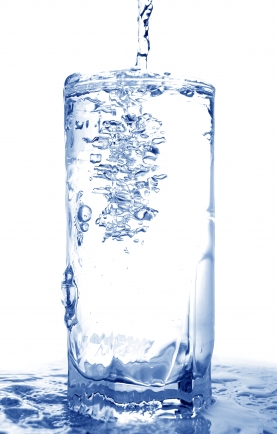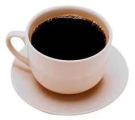Hydration 101
In the past 8 cups of water was recommended to stay hydrated… Not anymore! Researchers have looked at water intake and dehydration, and more than 8 cups is now recommended, especially if you’re exercising! Check out these simple and effective ways to stay hydrated through physical activity and exercise…
What is dehydration?
A decrease in body fluid from a normally hydrated state. This can occur if you’re not intaking enough water to support body functions, before, during and after exercise. Or if you’re sweating and losing fluid through your skin.
What’s the importance?
If you’re not taking in enough water before, and during your workout, your percieved exertion levels (difficulty of workout) will seem alot harder, and your workout will be less effective. When you’re dehydrated, you’re losing body fluids, this triggers physiological functions in the body to try to maintain a regular amount of fluid, and by doing this the heart rate increases. Normally during exercise the heart rate increases which is perfectly normal, but the heart rate can increase higher when dehydrated putting strain on the body. This makes you think you’re putting alot more effort into your workout, and ultimately may stop or slow you from reaching your fitness goals.
How do you know if you’re dehydrated?
- Thirst, fatigue, weakness
- Headache, irritability, dizziness
- Reduced mental alertness
- Impaired vision and muscle control
How to tell if you have rehydrated yourself?
In a lab setting, urine samples would be collected and measured. For a “do it yourself” all you have to do is look at the colour and amount. A large volume of light-coloured urine shows that hydration is sufficient. A small volume of dark-coloured urine may indicate that you need to drink more fluid.
Sources of fluids
About 20% of our fluid intake comes from the foods we eat, and 80 % comes from our beverages. So therefore, we need to start drinking more!
- Water
- Coffee & tea
- 100% juice
- Milk
- etc.
Adequate intakes of fluid
- Women need about 2.2 L (~ 9-10 cups) of fluid a day.
- Pregnant women need 2.3 L (~10-11 cups) of fluid a day
- Men need 3 L of fluid (~ 13 cups) per day
What about DURING exercise?
If your exercise is lasting more than 60 minutes, a drink with 6-8% carbs, or a watered down juice will help keep you hydrated. A carb drink is required to also help provide energy especially if your activity is of long duration, or high intensity. About every 15- 30 minutes depending on intensity (high intensity should look at the lower end) should be intaking about 250ml or 1 cup of water. For example, by the end of a low to moderate workout a regular water bottle (500ml or 2 cups) should be drank.
What about AFTER exercise?
Many different beverages can help hydrate you after a workout, but does the type matter? Some people recommend chocolate milk or regular milk because it has protein in it which helps with muscle repair and tastes good which makes you want to drink more! A sports beverage with carbs or just plain, cool water is sufficient to help you stay hydrated after a workout!
***the more you sweat = the more you drink***
Is it possible to drink too much?
For most healthy individuals, there is little risk for drinking too much. However there is a rare condition called hyponatremia, this is the result of low sodium and higher total body water. This can occur in novice athletes with exercising lasting longer than 4 hours and drink a great amount of fluid before, during and after exercise. It is recommended that endurance athletes drink a beverage with carbs so that this is prevented.
- Beverages containing caffeine are usually less than 180mg of caffeine for a regular cup. The normal single cup of coffee or tea is about 135mg and therefore is unlikely to increase urine output and cause dehydration.
- Sports drinks contain carbohydrates and are designed for rehydrating and refuelling during
 endurance activity or intense activities lasting more than 60 minutes, sports drinks are not interchangeable with energy drinks, they were designed for different purposes.
endurance activity or intense activities lasting more than 60 minutes, sports drinks are not interchangeable with energy drinks, they were designed for different purposes. - Energy drinks containing caffeine of other stimulants are meant to
 revive mental alertness in people having difficulty staying awake. These drinks usually contain more carbs that what is beneficial and therefore can be stored as glycogen in the body for later use or as fats.
revive mental alertness in people having difficulty staying awake. These drinks usually contain more carbs that what is beneficial and therefore can be stored as glycogen in the body for later use or as fats. - You can still become dehydrated in a pool! Just because you can’t feel the sweat doesn’t mean it’s not there!
- You can still become dehydrated in the winter! Layering clothes, and drinking cool water are not appealing in the cold, but it’s why you should be cautious of hydration levels in the winter! With more layers = more sweat, and therefore need more fluids to replace. The reason many exercisers become dehydrated in the winter is because layering the clothes makes it difficult to be quick in the bathroom. And because the urge to drink cold fluids in the winter is reduced.
For more information on fluid replacement you can consult a dietitian or come into the Wellness Center to see me, your certified personal trainer! 🙂



Thanks for this blog on hydration! find it very helpful